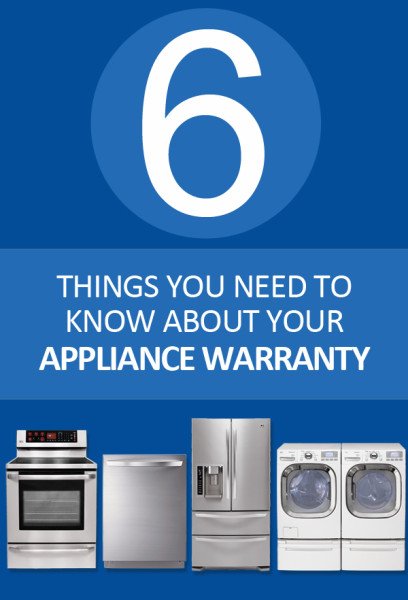
Here’s the thing: warranties aren’t always as simple as passing a baton in a relay race. Appliance brands, including Frigidaire, each have their own rules. You might assume a warranty sticks with the appliance itself, but sometimes it sticks with the person who bought it instead. Let’s dig into what you can actually expect with a Frigidaire warranty, what makes them different, and how to handle transferring one if it’s even possible.
How Frigidaire Kitchen Appliance Warranties Work
Understanding how a Frigidaire appliance warranty operates is a lot like reading the fine print on a board game—you need to know the rules before you make your move. Frigidaire, like many major appliance brands, offers warranties that generally kick in from the date of purchase. These usually cover defects in materials or workmanship, not regular wear and tear or accidental damage.
Most Frigidaire kitchen appliances—think refrigerators, ovens, dishwashers, microwaves—come with a limited manufacturer’s warranty. This typically lasts for one year, though some models or special promotions might offer longer protection on certain components, like sealed system parts or electronic controls. The warranty promises that if something inside the appliance fails due to faulty materials or how it was built, Frigidaire will repair or replace the problem at no charge.
But here’s the catch: the warranty language often says it only applies to the “original purchaser” of the appliance. That means the person whose name is on the receipt holds the warranty, at least in the eyes of Frigidaire’s customer service folks. You might see exceptions if the appliance is in a newly built home and you’re the first owner, but if you buy it used from someone else? The usual answer is: “Sorry, you’re not covered.”
So, if you’re thinking of grabbing that barely-used Frigidaire fridge on Facebook Marketplace, don’t count on the warranty automatically carrying over to you. There are a few wrinkles and rare cases, but that’s the basic setup.
Is a Frigidaire Warranty Transferable to a New Owner?
Now, let’s go right to the big question: Can you transfer the warranty on a Frigidaire kitchen appliance to a new owner? The short, honest answer is: usually not.
Frigidaire’s warranties are almost always “non-transferable.” That’s a fancy way of saying the warranty is tied to whoever first bought the appliance from an authorized seller, not the appliance itself. If you sell your Frigidaire stove, or give away your trusty old dishwasher, the warranty won’t go with it—at least, not in the eyes of Frigidaire’s service department.
Why do they make it this way? Well, brands want to control warranty costs and limit claims to people they can confirm followed the original setup and usage instructions. From their point of view, once you hand that appliance off, they can’t verify how it was used, if it was installed correctly, or if anything weird happened along the way.
There are rare exceptions, like when an appliance is installed in a brand-new home and the warranty covers the “first occupant,” but these are exceptions, not the rule. So if you’re buying or selling a used Frigidaire appliance, it’s best to assume the warranty is not coming along for the ride.
What Happens If You Sell or Buy a Used Frigidaire Appliance?
You might be wondering, “What’s the practical impact? Does Frigidaire ask for my ID or something?” Honestly, the process tends to be pretty straightforward. If you need warranty service, Frigidaire will usually ask for proof of purchase—aka, a dated sales receipt with your name on it from an authorized retailer. If the name doesn’t match, or you can’t supply the paperwork, they might politely (or not so politely) decline your claim.
Let me paint a quick picture. Suppose you grab that barely-used Frigidaire dishwasher from your neighbor. It looks shiny and new, and it even came with the original box. But when you call for a repair because the door latch is acting up, the customer service rep asks for your purchase receipt. You hand over a handwritten bill of sale from your neighbor, but that doesn’t count. Unless you were the person who originally bought it at Home Depot or Best Buy, the warranty is basically a nice idea—but not a reality.
That doesn’t mean all hope is lost, though. Sometimes, very recent purchases (especially those in builder homes or if you have all the original paperwork and the seller is helpful) can squeak through with a warranty claim. But you shouldn’t count on it. Always confirm with Frigidaire support before making a big decision based on a supposed warranty.
Are There Any Ways to Get Around Non-Transferable Warranties?
Here’s where things get tricky—and a little interesting. Most brands, Frigidaire included, stick hard and fast to their “original purchaser only” line. So, trying to sneak around the rules with fake paperwork or creative stories isn’t going to get you far. The service reps have seen it all. But there are a couple of (legit) loopholes worth knowing about.
- Builder or first occupant warranties: If you buy a brand-new home that already has Frigidaire appliances installed, sometimes the appliance warranty applies to the first person living in the home, not just the contractor or builder who bought the appliances. You might have to show your home purchase agreement or other documents, but it’s possible.
- Extended warranties or protection plans: Third-party or store-bought protection plans (like those from Best Buy or Home Depot) might be more flexible. Some can be transferred to new owners if you follow their process—usually involving a little paperwork and sometimes a transfer fee. These aren’t the same as the manufacturer’s warranty, but they can provide similar coverage.
- Goodwill adjustments: Very rarely, if an appliance fails just outside the warranty (or is obviously defective), a brand might cover a repair as a one-time goodwill gesture. This is totally at their discretion, and you’ll usually need the original proof of purchase anyway.
So, while you can’t usually transfer a standard Frigidaire warranty, there are a couple of paths to explore if you’re persistent—and a bit lucky.
What About Extended Warranties or Protection Plans?
Let me explain a subtle but important difference between manufacturer warranties and extended warranties (also called protection plans). The manufacturer warranty is what comes “for free” from Frigidaire when you buy the appliance new. Extended warranties are extra plans you can buy separately—sometimes from the store, sometimes from a third-party provider.
Why does this matter? Because these protection plans have their own terms, and some are transferable. For instance, if you bought your Frigidaire dishwasher from Best Buy and sprung for the Geek Squad protection plan, you might be able to transfer it to someone else when you sell the appliance. The rules will be in the plan’s fine print, but it’s often just a matter of notifying the provider and sending over the details of the new owner.
If you’re planning to buy or sell a used Frigidaire appliance, it pays to ask about any active protection plans. Heck, even if you’re the original owner, it’s a good idea to keep the plan paperwork handy in case you want to sell the appliance down the road.
Why Appliance Warranties Usually Aren’t Transferable
You might be thinking, “Isn’t it kind of annoying that warranties can’t be transferred? Why can’t they just stick with the appliance?” I get it—on the surface, it feels like a warranty should be more like a license plate than a driver’s license.
But from the company’s perspective, a warranty is a promise to the original buyer based on how they expect the appliance to be used and maintained. If an oven changes hands a few times, the brand has no way to know if it was handled well, installed correctly, or even abused along the way. Plus, limiting warranties helps manufacturers control their costs (and, to be honest, push people toward buying new appliances instead of used ones).
At the end of the day, brands want to avoid the headache—and cost—of investigating complicated secondhand situations. That’s why the original purchase receipt is so important; it keeps things simple.
Pro tip: If you’re buying a used appliance, always ask for any paperwork, original receipts, or proof of purchase. It won’t always help for warranty claims, but it can be handy for repairs, insurance, or just knowing how old the appliance really is.
Alternatives if You’re Worried About Appliance Issues
Let’s say you’re about to buy a used Frigidaire fridge, and you’re bummed about the lack of a transferable warranty. What can you do? Well, you have a few options to reduce the risk of post-purchase headaches.
- Ask for a demo: Have the seller plug in and run the appliance with you watching. Make sure it powers on, cools or heats properly, and doesn’t make any weird noises.
- Request a technician inspection: For pricier appliances, you might hire a local technician to give things a once-over—sort of like a preowned car inspection.
- Purchase a home warranty: Companies like American Home Shield will sometimes cover pre-existing appliances (with their own fine print, of course). This isn’t a manufacturer warranty, but can provide some aftermarket peace of mind.
- Research the model: Some Frigidaire models are known for reliability; others have quirks. A little Googling can tell you what kinds of issues (if any) to expect.
These steps aren’t foolproof, but they stack the odds in your favor when a warranty isn’t an option.
Comparing Frigidaire to Other Appliance Brands
You might wonder, “Is this just a Frigidaire thing, or do all brands work this way?” The honest truth: Frigidaire is pretty typical here. Major appliance brands—Whirlpool, GE, Samsung, LG, and others—almost always limit warranties to the original purchaser. The only real exceptions are high-end brands (sometimes Sub-Zero or Miele) or special extended warranty programs.
Some brands offer better online registration tools or more flexible protection plans, but in terms of the core manufacturer’s warranty, the “original owner only” rule is industry standard. So, if you’re shopping across different brands and hoping to transfer a warranty, don’t expect to find radically different policies.
If warranty coverage is a huge factor for you, it pays to buy new, register your appliance right away, and keep all your receipts and paperwork together. That way, you’ll have the best chance for hassle-free service if something goes sideways.
Final Thoughts: Navigating Frigidaire Warranties When Selling or Buying Used Appliances
Here’s the bottom line: Frigidaire kitchen appliance warranties are almost never transferable to a new owner. The only exceptions are rare and tightly defined. If you’re selling or buying a used Frigidaire appliance, don’t assume any manufacturer’s warranty is coming with it, even if it’s only a few months old.
Honestly, it’s a little bit of a letdown, but not the end of the world. There are ways to reduce your risk—like asking for a live demo, checking for extended protection plans, or even investing in a home warranty. When you’re the original owner, always register your appliance, keep those receipts safe, and read the warranty booklet (yes, even though it’s not exactly a page-turner).
Buying or selling secondhand Frigidaire kitchen appliances can save a lot of money, but the warranty question is a reminder to do your homework and go in with open eyes. If you know what to expect, you can make a smart, stress-free choice—warranty or not.
